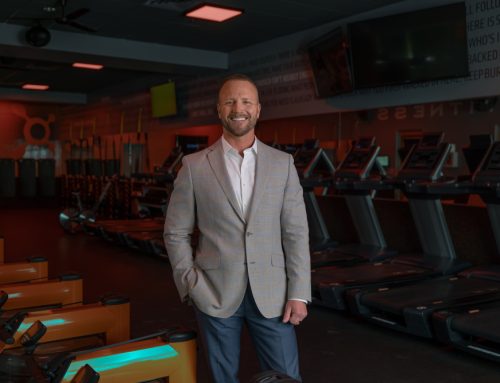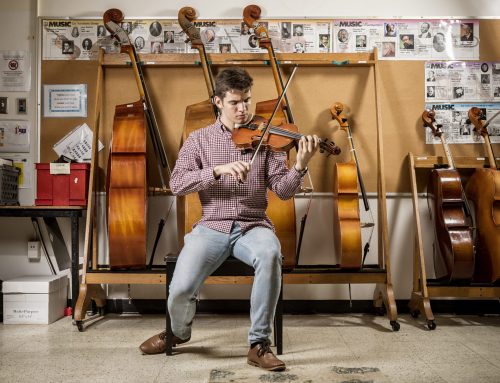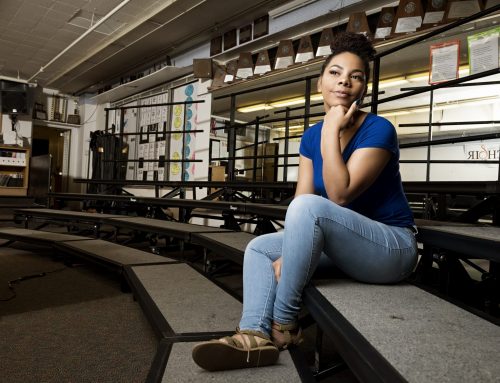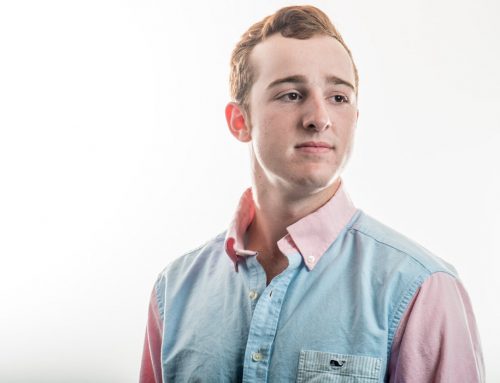Moving across the globe to flee life as a teenage bride, losing a parent, overcoming personal demons — teenagers here and everywhere deal with hardships, but few do so while remaining on the academic honor roll and even fewer emerge as leaders among their peers.
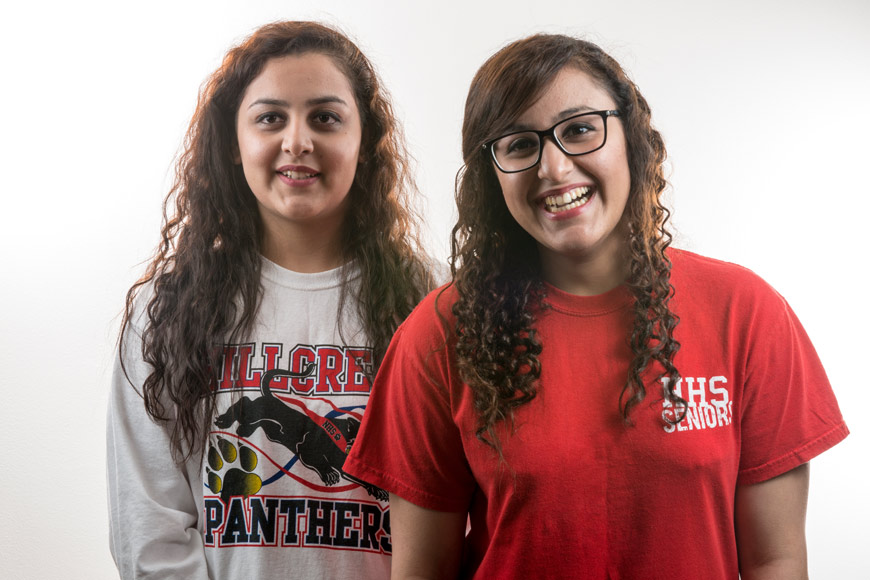
Rabiya and Ayesha Merchant moved to the United States in 2014, because they weren’t ready to get married. The sisters — who will graduate from Hillcrest High School this month — were born and raised in Karachi, Pakistan. There, they say, girls are often “forced” to wed at age 16 or 17 and are left with few opportunities.
“Our parents are fine with us not getting married,” Ayesha says, adding that both she and her sister plan to attend college. “We were done with our basic education, so they said, ‘It’s time to move and get a better, higher education.’”
The move itself wasn’t terribly difficult — they came with their parents and stayed with their maternal uncle in Dallas — but starting school was a different story. Initially, they tried to enroll at W.T. White but there wasn’t enough space. Eventually they registered at Hillcrest where Ayesha, who is one year older than Rabiya, was told some of her credits wouldn’t transfer. The girls were placed in the same class. Then, of course, there was the issue of making friends.
“It was awkward,” Ayesha admits. “We were stereotyped because we moved from a Middle Eastern country. They thought we didn’t know English. It was funny because we had seen it in movies and stuff — how people stereotype.”
Rabiya adds, “They thought we would wear head scarves and wouldn’t wear jeans or t-shirts. They thought we might be a little backward thinking. We didn’t really take it to heart because we knew this could happen.”
Instead of fretting, the girls got involved in extracurriculars — lots of them. They joined the Biomedical Research Program, Student Council, Interact Club and the National Honor Society. The sisters even started working on a zine with a group of girls who share their interest in topics like international politics and feminism. Pretty soon they had swarms of friends. Things were looking up. But then, about a month into the Merchants’ second semester at Hillcrest, their grandfather fell ill.
“We had to move back [to Pakistan] and complete the semester over there,” Ayesha says solemnly. “We didn’t know for sure if we’d be coming back.”
Dr. Durgha Shanmugan-Johnson, a popular teacher among Hillcrest students, says she had grown fond of the sisters and was sad to see them go.
“They’re selfless,” she says. “They’re unique and different from each other, but, in regards to their character, they’re very much the same.”
The girls had adjusted so well to life in the states, Karachi felt a bit foreign.
“We started seeing stuff differently, with a broader mind,” Ayesha explains.
They kept in touch with their friends at Hillcrest via Facebook and Snapchat, but weren’t sure if they’d ever be reunited.
When their grandfather passed away a few months later the girls were heartbroken. But their flight back to the states couldn’t have been more poetic.
“We landed on the Fourth of July,” Ayesha says.
“We saw fireworks from the plane,” Rabiya remembers fondly. “We were were like, ‘Woah, this is amazing! Even better than on the ground.’”
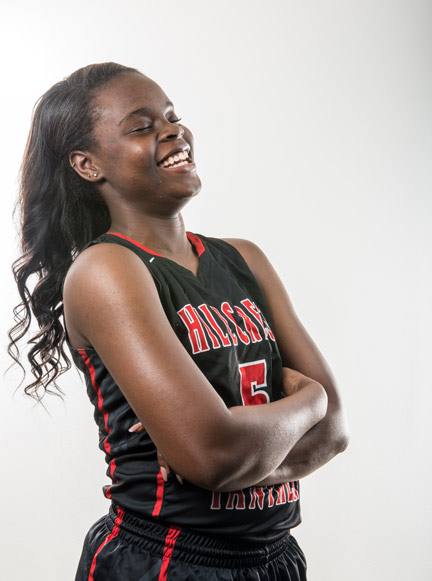
Ericka Scott, photo by Danny Fulgencio
Ericka Scott once led something of a double life. As a freshman at Hillcrest High School, she was active in a host extracurriculars — cheerleading, basketball, volleyball and track — but she also got into the occasional fight. She remembers two altercations specifically. The first occurred at a football game, the second in the school gym. Neither, she says, would have happened if she had been more careful about her associations.
“A lot of parents and teachers told me, ‘You have a great future in front of you, so don’t let anybody ruin it,’” Scott remembers.
She took their advice to heart and began distancing herself from bad influences in her life.
“It just looked very tacky,” she says. “When people [heard about the altercations] they were like, ‘Oh, she’s involved in all these [extracurriculars] but she’s getting in fights.’ That doesn’t look good. I want everything people say about me to be positive.”
She seems to be doing pretty well in that regard. Dr. Durgha Shanmugan-Johnson, her former physics teacher, says Scott completely “turned life around by focusing on classes.” She also took on a few leadership roles. This year, her final at Hillcrest, she serves as varsity cheerleading captain, varsity basketball captain and varsity volleyball captain. But that doesn’t mean it was all smooth sailing after ninth grade. Last year, Scott found herself in an abusive relationship. She says her boyfriend at the time only hit her once, but it was hard enough to send her to the emergency room for stitches and leave emotional scars.
“I had to get three stitches in my mouth,” she remembers. “It was very heartbreaking. We’d been together for almost three years and it just came out of nowhere. I don’t know why he was so angry, but he took his anger out on me.”
If not for the support of the Hillcrest community, Scott says she may not have had the strength to break things off. Shanmugan-Johnson was one of her biggest supporters during that difficult time.
“She was there for me basically like a second mom,” Scott says. “She was a mentor.”
The teacher is modest about her role in Scott’s success. “I just told her, ‘You’re a great leader, do you know that? You have potential.’”
Though she’s been through a lot, Scott remains optimistic about the future. This fall, she’ll begin working toward a nursing degree at Texas Southern University in Houston.
“I think it’s going to be a new experience,” she says. “Maybe challenging at times, but life brings challenges.”
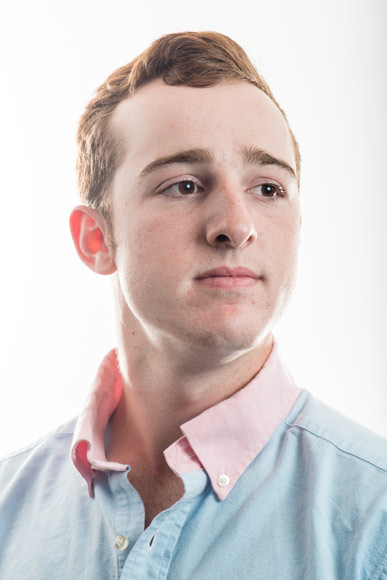
Ben Broughton, photo by Danny Fulgencio
It was almost Christmas break when Ben Broughton, then a junior, discovered he was ranked second in his class at Hillcrest High School.
“That was awesome,” he says. “I was really excited, but I wanted to be number one. That was kind of my dream.”
Broughton was prepared to rev up his studying, when something devastating happened. His mother passed away. Her death was completely unexpected, the result of complications from a recent surgery.
“I went to school that day,” he says. “I didn’t want to be alone.”
He remembers having lunch with one of his favorite teachers. They ate Philly cheesesteaks and “just talked.” It was therapeutic.
“I was sad,” he admits. “But I had the support of the Hillcrest community. Everyone came together and showed me that I wasn’t alone in this.”
The school’s PTA even paid for Broughton’s older brother, who had recently moved to Austin, to take a bus home. The boys grieved together in their neighborhood house — the same house, it’s worth noting, in which their mother grew up. She, too, attended Hillcrest.
Invigorated by these gestures of kindness, Broughton says he made a conscious choice to remain optimistic.
“I saw I could look at this two ways,” he explains. “I could dwell on it — drink or smoke my way to happiness — or I could use it as motivation to continue on the path that I was on and just do the best I could.”
Advanced Placement exams were a mere two weeks away. Broughton poured himself into his studies and it paid off — he passed all four tests with flying colors. He also rose to the top of his class and plans to deliver his valedictorian speech this month.
“He ended up a star student,” says Dr. Durga Shanmugan-Johnson, who has known Broughton since his freshman year. “It’s just fascinating that he was able to go through all that he’s been through and rise to the top.”
At the time of our interview Broughton had sent college applications to Harvard, Massachusetts Institute of Technology, Stanford, University of Pennsylvania and University of Texas, his mother’s alma matter. No matter where he ends up, he plans to study chemical engineering because of his interest in renewable energy. He’s a scholar, to be sure, and he comes by it honestly.
“I have to credit my mom,” he says. “Not in the sense that she was on me about school, but she was a teacher and she was very smart … I’m decently studious but I also just pick up stuff really quickly … I credit my mom for my good genes.”


